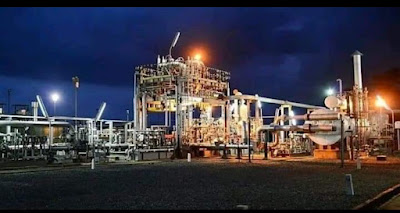Nigerian industrialist Deji Adeleke has announced that his flagship 1,250 megawatt (MW) combined‐cycle gas power plant is now set for formal commissioning later this year, marking one of the country’s largest private-sector energy projects to date.
Located on a 150-acre site in Ikorodu, Lagos State, the $1.1 billion facility was developed through a joint venture between Adeleke’s strategic investment firm and two international engineering partners. The plant comprises four 312.5 MW gas turbines and a single 320 MW steam turbine, operating in combined-cycle mode to maximize efficiency and reduce greenhouse-gas emissions.
“This project represents a major milestone in Nigeria’s ongoing energy transformation,” said Mr. Adeleke at a media briefing. “When fully operational, the plant will deliver reliable power to more than three million households, alleviate chronic load-shedding, and support industrial growth across the southwest region.”
According to the Ministry of Power, the new plant will inject its first tranche of 500 MW into the national grid upon commissioning—anticipated in November—before ramping up to its full 1,250 MW capacity by early 2026. At today’s briefing, the Minister of Power, Dr. Amina Yusuf, confirmed that the project has already undergone successful grid-synchronization tests and met all safety and environmental compliance checks.
Aside from addressing Nigeria’s perennial power deficit, the facility is expected to generate over 600 direct jobs during operations and create upward of 2,000 indirect positions in logistics, maintenance, and local services. Community leaders in Ikorodu have welcomed the development, citing improved local infrastructure—including road upgrades and new electrification of surrounding settlements—as major benefits.
Environmental advocates have also noted that the combined-cycle design achieves thermal efficiencies in excess of 55 percent, significantly outperforming older, simple-cycle plants. “Lower fuel consumption per megawatt hour translates to fewer carbon emissions,” remarked Engr. Bassey Nkanga of the Nigerian Energy Forum.
With private-sector investment playing a growing role in Nigeria’s power sector, Adeleke’s plant adds to a pipeline of large-scale projects aimed at closing the nearly 20 GW gap between installed capacity and actual electricity supply. Industry analysts predict that successful commissioning could spur further commercial financing, particularly as the federal government continues to unlock gas reserves and streamline regulations.
As the countdown to the November inauguration begins, stakeholders say the real test will be maintaining steady gas supply and ensuring that transmission bottlenecks do not curtail output. For now, however, the 1,250 MW plant stands as a concrete sign of progress—and a potential game-changer for millions of Nigerians still living with unreliable power.
Sign up here with your email

ConversionConversion EmoticonEmoticon